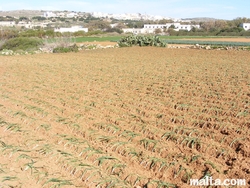Economy of Malta: strong points and development of Maltese business and trade
Malta has limited resources but a thriving economy
Malta does not have any natural resources and experiences a limited fresh water supply; and it only produces around 20% of the food requirements. Thus, the economy is dependent on the human resources and foreign trade. Malta’s economy is practically driven by financial services, tourism, real estate, Igaming and manufacturing, particularly of electronics. Other significant sectors are pharmaceuticals, information technology, and call centres.
 The development of Malta’s Economy
The development of Malta’s Economy
Before the 1800, most Maltese were farmers or fishermen, even if there was considerable commerce. At the time there were very few industries apart from cotton, tobacco and shipyards. During wars, Malta's economy flourished because of its strategic location in the Mediterranean. With the opening of the Suez Canal in 1869, Malta saw a substantial rise in the number of ships entering the port, as the Mediterranean became the main trade road.
Malta's Economy after the Second World War
By the end of the Second World War, Malta lost its strategic importance and the British had to wonder about alternative ways of income. When Malta got its independence in 1964, economic activity was minimal, but huge government efforts to start up the manufacturing and tourism industry yielded good results. Aided by agreeable international economic conditions and policies that supported foreign investment, the Maltese economy sustained fast growth right to the end of the 20th century.
 Malta's Economy in the aftermath of EU membership
Malta's Economy in the aftermath of EU membership
Malta joined the European Union in 2004 and the Eurozone in 2008. When comparing the per capita GDP in the EU, the country falls just above the middle with respect to wealth. The Maltese Government has pursued a policy of gradual economic liberalization and privatisation, taking some steps to shift the emphasis in trade and financial policies from reliance on direct government intervention and control to policy regimes that allow a greater role for market mechanisms. While change has been very substantial by international standards, the economy remains fairly regulated and continues to be hampered by some longstanding structural weaknesses.
The Economy in Malta today
Malta managed to maintain a relatively low unemployment rate, mainly because of the constant growth and by policies encouraging continuous training for the labour force. Globally, Malta ranks sixth in inward Foreign Direct Investment and amongst the top twenty among countries most likely to sustain economic growth over the medium and long term.

